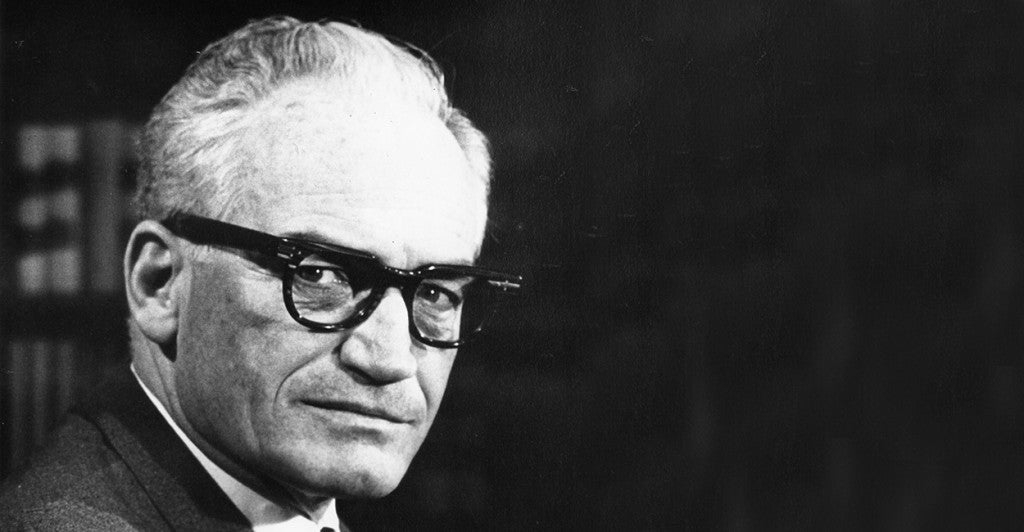It was 50 years ago this month that then-Sen. Barry Goldwater, R-Ariz., suffered one of the most lopsided defeats in the history of presidential elections.
He carried just six states and received only 38 percent of the popular vote. Not only had Democrats worked against him, but many in his own party disavowed him because he was true to his conservative principles.
“The mere idea that ‘Barry might make it’ is enough to give the Establishment the galloping colleywobbles,” wrote the Saturday Evening Post at the time.
And when he lost, the New York Times wrote that Goldwater “not only lost the presidential election yesterday but the conservative cause as well.”
Yet 16 years later, Ronald Reagan, his political heir, won the presidency in a landslide.
He had not lost the conservative cause. Columnist George Will argued that Goldwater “lost 44 states but won the future.”
>>> Heritage Event: The Barry Goldwater 1964 Campaign 50th Anniversary Forum
In fact, Lee Edwards, who worked as director of information for the Goldwater campaign and serves as a distinguished fellow in conservative thought at the B. Kenneth Simon Center for Principles and Politics at The Heritage Foundation, has called Goldwater “the most consequential loser in American politics.”
“Paradoxically, Goldwater’s monumental loss marked the beginning of a shift to the right that would eventually end 50 years of liberal dominance in American politics,” Edwards said.
Goldwater shaped the Republican Party’s positions on limited government, welfare and defense, which would carry the United States into the 21st century. Goldwater revived our constitutional heritage, placing it at the center of popular political discussion when the conservative cause seemed lost. … He insisted that Americans did not have to live under progressivism at home while being threatened by communism abroad.
Then, there was Goldwater’s decision to allow the program at the 1964 Republican convention to include a speech called “A Time for Choosing.”
“Among Goldwater’s other lasting impacts on American politics was his approval of a nationally televised speech by a semiretired film and television star named Ronald Reagan,” Edwards said. “California Republican leaders said they would not have approached Reagan the following year to run for governor if it had not been for “A Time for Choosing.”
Becky Norton Dunlop, vice president of external relations at The Heritage Foundation, said she was the only student in her eighth-grade class who would debate on behalf of Goldwater.
“He energized a whole generation of people,” said Dunlop. “He’s the reason I knew I was a conservative.”
Dunlop also credits Goldwater with building the foundation of the modern conservative movement.
“We needed Goldwater to break onto the scene,” said Dunlop. “He laid the foundation for the Reagan campaign. In politics, you stand on the shoulders of the people who came before you. You connect ideas down through the ages.”
Dunlop said there are still lessons from the Goldwater campaign that conservatives need to learn, such as the “clarity of your ideas.
“Build on your base. Make sure you know what you believe and why you believe it,” said Dunlop.
The 50th anniversary of Goldwater’s presidential campaign will be commemorated at a dinner in Washington, D.C., on Nov. 18. Several of Goldwater’s children will be in attendance, including former Rep. Barry Goldwater Jr., Michael Goldwater and Peggy Goldwater Clay.
